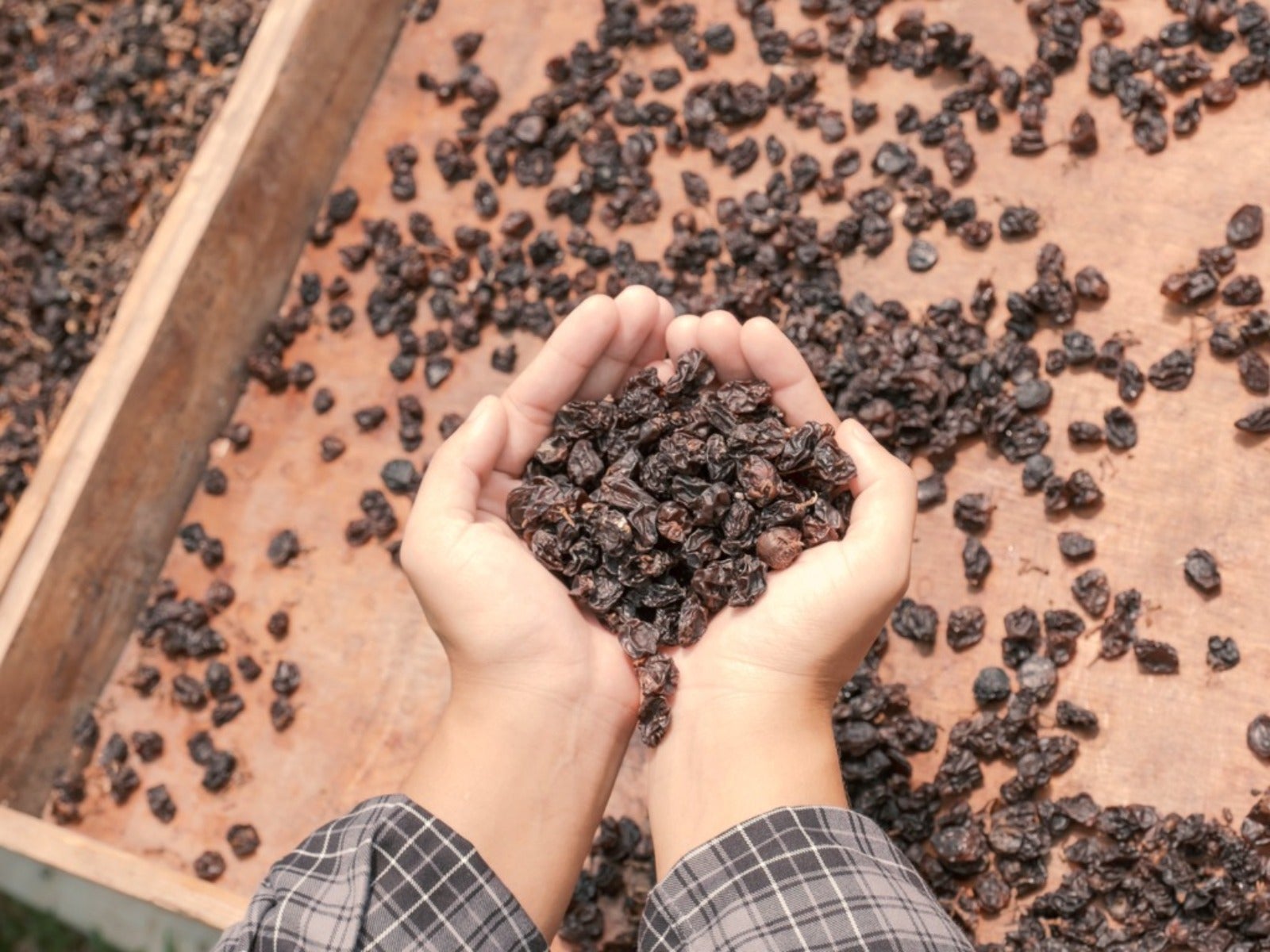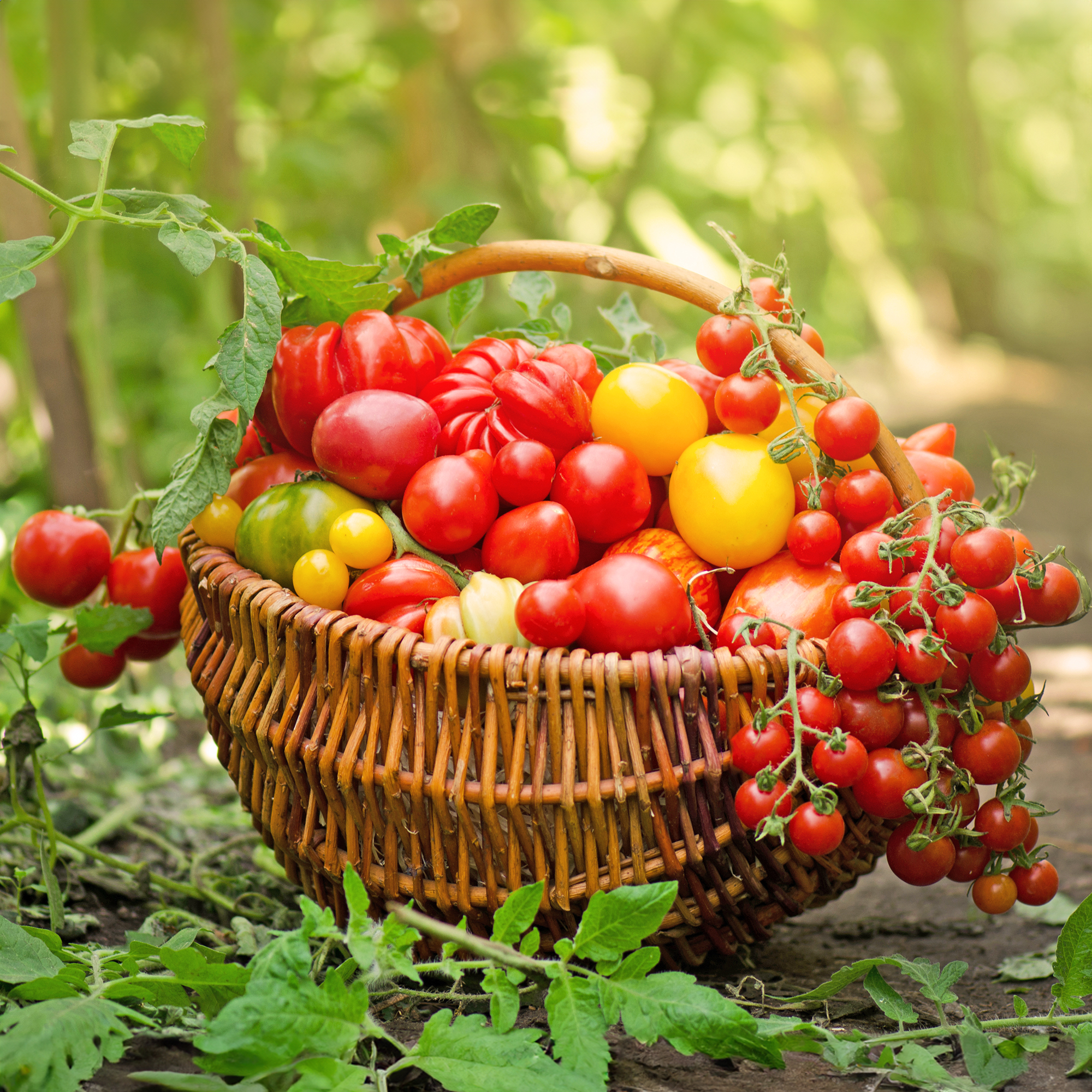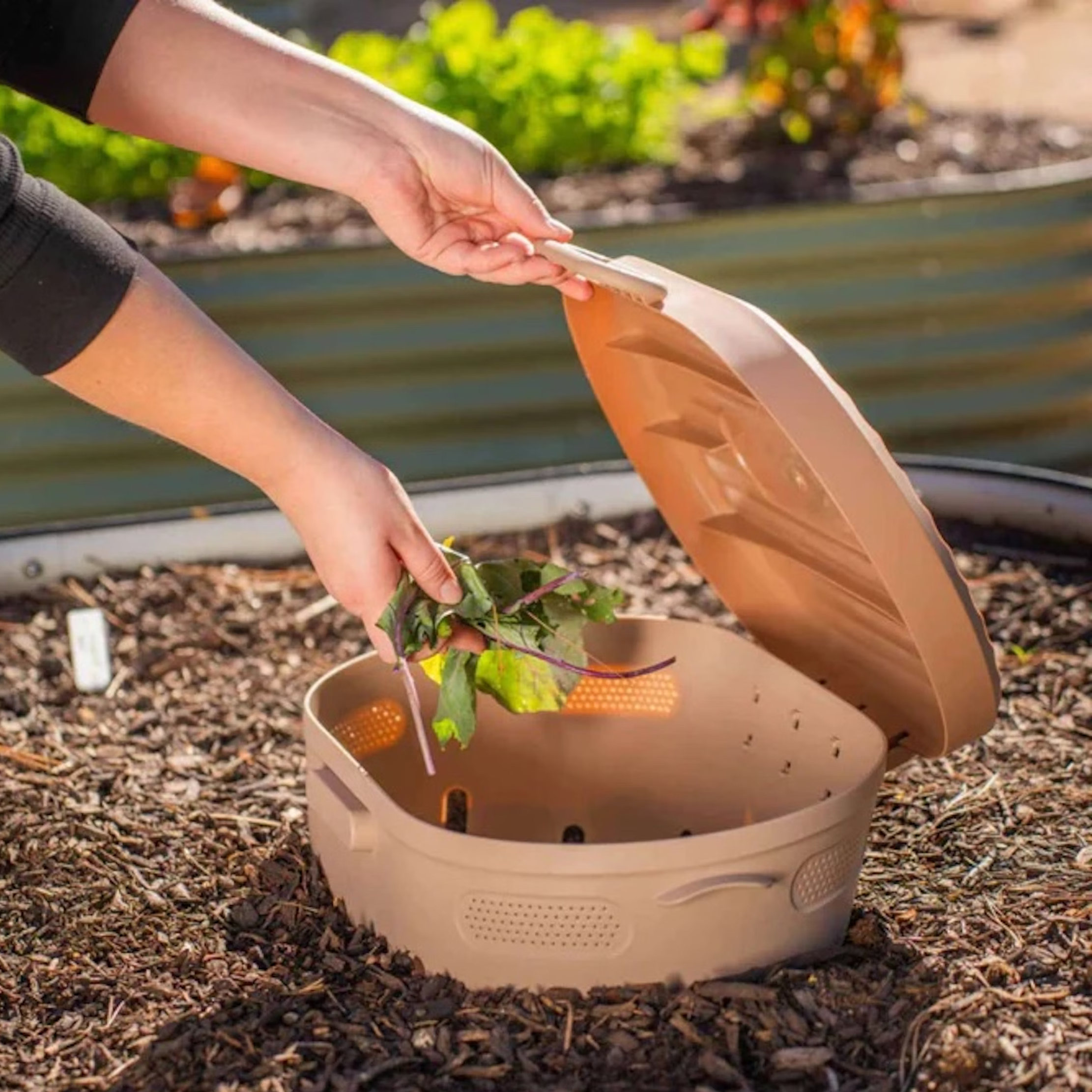How To Make Raisins From Homegrown Grapes

Grapes make a wonderful, nutritious snack, but when you have too much of a good thing what do you do? You learn how to make raisins at home of course! How do you make raisins"There are a few different methods: dehydrator, oven dried grapes, and even sun dried grapes. Keep reading to learn how to make raisins in a dehydrator, oven, or under the sun.
Grapes are rich in vitamins and antioxidants, low in calories and fat, and they’re just plain fun to nibble on. Many people grow grapes to make wine, act as a privacy barrier, or to eat fresh from the vine. But when you’ve eaten all the fresh grapes one family can handle, it’s time to dry them and make raisins.
About Raisins
Dried fruit was probably an accidental concept. Likely someone picked up a dried grape or other fruit from the ground and found out that it was quite palatable, and in fact, delicious! Plus it lasted longer in storage than fresh produce. There is evidence that the ancient Egyptians were drying grapes as early as 2000 BC.
The Spaniards brought grapes to California in the late 1700s, finding the climate perfect for wine making. At some point some of those grape growers found that there was profit to be made in producing raisins instead of wine. All this led up to the famous singing California raisin commercials of the 80s.
Commercial growers use only three types of grape to make raisins: Thompson seedless, Muscat of Alexandria, and the Black Corinth. But you can use any type of grape to make raisins, albeit seedless is best.
How to Make Raisins in the Sun
As mentioned, there are three methods to drying grapes. Since grapes are composed of 80% water, expect the drying process to take some time no matter which method you select.
For example, the traditional way to make raisins is to dry them in the sun, but this requires not only hot and dry conditions but at least three to four days of them. If you choose to dry your grapes using this method, cover them so insects and other critters don’t help themselves. Also, it's a good idea to bring them in at night and then return them to the outdoors when the sun rises.
Gardening tips, videos, info and more delivered right to your inbox!
Sign up for the Gardening Know How newsletter today and receive a free copy of our e-book "How to Grow Delicious Tomatoes".
Making Raisins in the Oven
Wash the grapes well. Then you need to break the skins so that moisture can escape the fruit from the inside. There are three methods that will break the skin.
You can blanch the grapes by dunking them in boiling water for 30 seconds and then immediately plunging them into ice water to stop the cooking process. You can pierce each individual grape with the point of a sharp knife, or you can cut each grape in half. The latter two methods are somewhat tedious, however.
Once the skins have been broken, it’s time to dry the grapes. If using an oven, set the oven to 145 degrees F. (63 C). Lay the grapes out on lightly oiled baking sheets. Place the baking sheets in the oven and allow the grapes to dry for up to 12 hours. The timing will vary depending upon the size and type of grape.
As the grapes are drying in the oven, leave the door ajar a couple of inches (2.5 cm) to allow steam to escape. Check the grapes every few hours until they are at the degree of dryness you prefer.
Remove them from the oven when dried and allow to cool completely. Store in an airtight container.
Raisins in the Dehydrator
Place clean grapes (after breaking the skin) on the dehydrator trays. Dry the grapes at 135 degrees F. (57 C). This can take anywhere from 24 to 48 hours. Check on the degree of dryness after about 18 hours and thereafter every five to six until they are sufficiently dried.
The length of time drying takes depends on the type of dehydrator you have, humidity levels, type of grape, etc. The best way to tell if the grapes are done is to remove a few, let them cool, and then taste them. They should be dry but still slightly moist and chewy.
Store in an airtight container once completely cooled. Properly dried raisins can be stored in this manner for months, or even years.

Amy Grant has been gardening for 30 years and writing for 15. A professional chef and caterer, Amy's area of expertise is culinary gardening.
-
 Types Of Tomatoes Explained: Explore The Many Wonderful Shapes, Colors, Flavors, & Best Uses
Types Of Tomatoes Explained: Explore The Many Wonderful Shapes, Colors, Flavors, & Best UsesThe world of tomato varieties is vast and fascinating. Learn about the key types to grow in your garden, tailored to your preferences and space.
By Amy Grant
-
 Try The Trend – Turn Any Bed Into A Keyhole Garden With This Clever In-Ground Composter
Try The Trend – Turn Any Bed Into A Keyhole Garden With This Clever In-Ground ComposterKeyhole gardening is an efficient and sustainable practice that saves space. Get started on this DIY project quickly and easily with an in-ground composter.
By Bonnie L. Grant